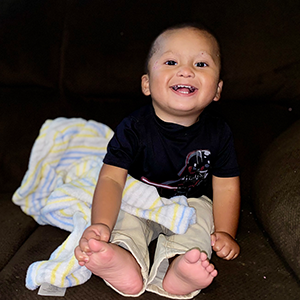-
Science Saturday: Discovery advances potential individualized treatment for mesothelioma
Large chromosomal rearrangements present in mesothelioma could make it possible to understand which patients are likely respond to immunotherapy, researchers at the Mayo Clinic Center for Individualized Medicine have discovered. The research is published in the Journal of Thoracic Oncology.

“What we’ve shown so far is that these large complex chromosomal rearrangements are frequent in mesothelioma and may provide a source of neoantigens (cancer proteins) that the immune system can recognize,” says Aaron Mansfield, M.D., a Mayo Clinic oncology researcher and lead author on the paper. “It would be an entirely new way of predicting response.”
This finding is significant in part because the prognosis is often poor for mesothelioma — a rare, aggressive form of cancer linked to asbestos exposure that forms on tissue lining in the lungs, heart and abdomen. There is no cure, and standard cancer treatment of chemotherapy, radiation and surgery doesn’t work for everyone.
“Mesothelioma does not have many of the mutations that are common in other cancers. Instead, there were chromosomal rearrangements that may have prognostic and therapeutic implications,” says Dr. Mansfield. “There were many more rearrangements than we expected. We were able to identify complex patterns of rearrangements called chromothripsis and chromoplexy. The extent of these patterns has never before been described in mesothelioma.”
Many types of DNA changes are known to be present in cancer cells. Using advanced genomic technology, a research team at Mayo Clinic was able to zero in on precise genetic variants driving mesothelioma. They used a new technology known as mate-pair sequencing, which looks at chromosomal rearrangements.

“Mate pair sequencing is an inexpensive way to scan the whole genome of tumor cells for chromosomal abnormalities that could give rise to cancer –causing proteins. By detecting all these abnormal junctions, mate pair sequencing reveals a new biological marker for predicting response to immunotherapy,” says George Vasmatzis, Ph.D., co-director of the Center for Individualized Medicine Biomarker Discovery Program, and final author on the study.
The Mayo Clinic team hopes this early research will lay the foundation for predicting which patients with mesothelioma are most likely benefit from immune checkpoint inhibitors. That class of drugs unleashes the power of each individual’s immune system to attack cancer cells.
Additional research is needed to verify the findings.
The study was funded by Leah and Richard Lommen, Mayo Clinic Center for Individualized Medicine Biomarker Discovery Program and National Institutes of Health grant NIH K12 CA90628.
###
Join the conversation
For more information on the Mayo Clinic Center for Individualized Medicine, visit our blog, Facebook, LinkedIn or Twitter at @MayoClinicCIM.
Coverage from the 2018 Individualizing Medicine Conference:
- CIM CON day 1 – Precision cancer care: ‘So much power’
- CIM Con day 2: Unlocking the mystery of rare diseases
- 6 ways individualized medicine in advancing patient care
- CIM Con18 Wrap up
- CIM Con breakout session: gene editing
- Mayo Clinic Minute: What is the microbiome and how does it affect your weight?








